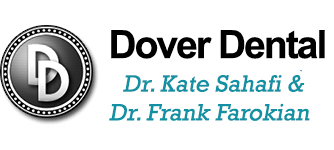Extractions
Post Operative Tooth Extraction
The initial healing period usually takes one to two weeks, and you’ll likely experience some swelling for the first forty-eight hours.
Before the procedure began, you were given an anesthetic to ensure your comfort. This anesthetic typically leaves your lips, teeth, and tongue feeling numb after the appointment. For this reason, you should avoid chewing for two hours following surgery, or until the numbness has completely worn off.
- Some discomfort after the extraction is normal. An over-the-counter pain reliever is usually sufficient. We can also give you a prescription for a stronger pain reliever if needed.
- To avoid nausea, do not take pain medication on an empty stomach.
- You can also decrease pain and swelling by applying an ice pack — twenty minutes on, twenty minutes off — for the first six hours following the extraction.
- A blood clot will form on the extraction site, and this clot is vital to the healing process. To keep the clot intact, avoid touching the extraction site with your tongue or fingers, do not drink liquids through a straw, and do not spit vigorously.
- Blowing your nose or sneezing violently can also dislodge the blood clot and impair healing, so if you have an upper respiratory infection or suffer from allergies, be sure to have the appropriate sinus medication on hand.
- Do not rinse your mouth on the day of the surgery. Smoking, or allowing food particles to pack into the tooth’s socket, should be avoided, as both will significantly affect the healing process.
- Twenty-four hours following the procedure, you can rinse gently with mouthwash or a warm saltwater solution. (Dissolve one teaspoon of salt with one cup of warm water. Gently swish the solution around the affected area, and spit carefully.) You should do this two to three times each day for the week following the extraction.
- If antibiotics were prescribed, continue to take them for the indicated length of time, even if all symptoms and signs of infection are gone.
- Relax as much as possible and avoid all strenuous activities for the first twenty-four hours following surgery.
- Once the numbness has worn off, you should eat, as nourishment is important to the healing process. Limit your diet to soft foods like yogurt, soft soups, ice cream, or soft-cooked eggs for the first forty-eight hours, and drink at least eight large glasses of water or fruit juice each day.
- Keep your head elevated with pillows to control bleeding. We will give you a supply of gauze sponges to place over the bleeding area.
- Change the pad as necessary, and use them until the bleeding stops completely. You can also bite gently but firmly on a moist tea bag for twenty minutes. Be sure to call our office if the bleeding persists or increases.
- The space left by the tooth will feel a bit strange to you at first. Eventually, new bone and gum tissue will grow into the gap left by the extraction.
